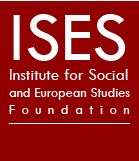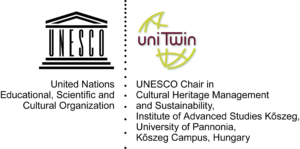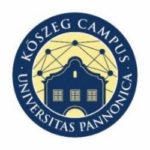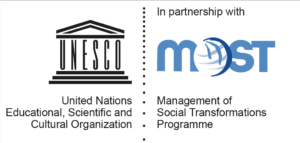Monday 22nd February
09:00-9:30 Online registration – Zoom
9:30-10:00 Introduction session – Zoom
10:00-10:30 Keynote: John Keane: Citizenship and the New Despotism – Facebook and Zoom
10:30- 12:00 Comments and discussion – Zoom
12:00-15:00 Lunch break
15:00 – 15:15 Ferenc Miszlivetz welcome speech – Facebook and Zoom
15:15 – 15:30 Miklós Réthelyi welcome speech – Facebook and Zoom
15:30 – 16:00 Keynote: Sean Cleary: The Challenge and Responsibility of Citizenship in 2021 – Facebook and Zoom
16:00 – 16:30 Discussion – Zoom
16:30 – 16:50 Cultural introduction – Citizenship and the Role of Culture by Zoltán Mizsei – Zoom
Tuesday 23rd February
Moderator of the day: Jody Jensen
09:00-9:30 Online registration – Zoom
9:30-10:00 Introduction session – Zoom
10:00- 10:30 Keynote: László Z. Karvalics: From Citizen Science to Citizen Empowerment – Facebook and Zoom
10:30-12:00 Discussion – Zoom
12:00-14:00 Lunch break
14:00- 15:00 Democracy at a Cross Road: Populist Turns and Illiberal Responses. Perspectives from Central and Southeastern Europe – Facebook and Zoom
Divisions forged around the notion of citizenship have become fertile ground for systemic disruptions and are evidenced in the rise of both left- and right-wing populism, emerging radicalism, lack of institutional and social trust, normalization of political disillusionment, and general disengagement from political processes on the part of citizens. How can we reimagine a model of participatory citizenship in what have become increasingly alienated political systems of governance? How do we construct new forms of political solidarity in increasingly divided societies?
Moderator: Ferenc Miszlivetz
Jody Jensen, Lovro Kralj, Dimitar Nikolovski, Igor Stipic, Leida Ruvina,
Comments: Z. Karvalics László
15:00-16:00 Discussion – Zoom
Wednesday 24th February
Moderator of the day: Anikó Magasházi
09:00-9:30 Online registration – Zoom
9:30-10:00 Introduction session – Zoom
10:00-10:30 Keynote: György Schöpflin: The Ambiguities of Citizenship and Nationhood – Facebook and Zoom
10:30- 11:30 Migration, Belonging, Multicultural Societies – Facebook and Zoom
Due to the pandemic, the condition for refugees and migrants in camps has worsened. Their already perilous existence has become even more precarious. Although the number of asylum seekers is down, for many countries the migration “crisis” will never be over. That is because the problem has never really been about numbers, but rather about European solidarity. How do we reconcile national and supranational modes of belonging? How do we construct new forms of political solidarity in increasingly divided societies?
Moderator: János Bogárdi
Dion van den Berg, György Csepeli, György Schöpflin
11:30-12:00 Discussion – Zoom
12:00-14:00 Lunch break
14:00- 15:00 International Organizations as Mediators between Local, European and Global Citizenship – Facebook and Zoom
In the context of socio-political transformations, contradictory political tendencies emerge. On the one hand, calls for global citizenship, underwritten by proponents of globalization, have attempted to radically transform the notion of (national) citizenship. On the other hand, a number of political movements display strong opposition to these progressive integrationist forces. What role can international organizations play to mitigate the increasing imbalances? What lessons can be learned from their recent failures?
Moderator: János Bogárdi
Graham Bell, H. E. Katalin Bogyay, Tibor Navracsics
15:00-16:00 Discussion – Zoom
Cultural broadcast: Binder Trio: Bartók for Children II. (part 1) – Facebook
Thursday 25th February
Moderator of the day: Izabella Agárdi
9:30-10:00 Online registration
10:00-11:00 Citizen Engagement in the Era of Fake News, with Particular Attention Paid to the US Elections – Facebook and Zoom
Political parties and politicians have shown they can influence, impact and win elections through the strategic use of social media – this includes the spread of fake news or “alternative facts”. Social media could be employed as a democratizing force, but corporate, neoliberal and extremist forces have utilized it to control false narratives and misinform the public. What can we do to counterpose fake news? How can we increase effective civic engagement in the era of fake news and social media?
Moderator: Ferenc Miszlivetz
Todd Pittinsky (Stony Brook University): False Narratives on the Social Media Challenges & Possibilities
Panelists: Ilan Chabay, György Csepeli, Ahmet Evin, James M. Skelly
11:00-12:00 Discussion – Zoom
12:00-14:00 Lunch break
14:00-15:00 Climate Change and Citizenship in the times of Global Pandemic – Facebook and Zoom
Taking the contemporary Covid-19 pandemic as only one example of larger problems human society will face as a result of the ongoing processes of climate change, the panel asks how these developments may affect the notion of democracy and citizenship in the future. Using the Covid-19 as a case in point, which has only accentuated prevailing tendencies of our times, the panel questions the impact that climate change may have on the emerging political sphere and modes of citizenship. Likewise, the panel addresses distinct ways in which the pandemic was tackled on local, regional, and global levels of governance, in order to draw lessons that can further the creation of more resilient societies today and in the future.
Moderator: Sándor Kerekes
János Bogárdi, Daniel Brooks, Orsolya Bajer-Molnár, Ortwin Renn
15:00-16:00 Discussion – Zoom
Cultural broadcast: Binder Trio: Bartók for Children II. (part 2) – Facebook
Friday 26th February
Moderator of the day: Katalin Bognárné Lovász
9:30-10:00 Online registration
10:00-11:00 Morning Session: Future of Education and Politics of Democracy – Facebook and Zoom
The panel posits the educational problématique within the wider topic of global political turmoil and democratic change. In this sense, the panel addresses the question of the relationship between educational policy and the politics of democracy in the contemporary world. Thus, we interrogate not only the position that educational institutions have predominantly occupied within the dominant structure of the world-order, but also investigate what is the role that these knowledge-producing institutions should be expected to take in the future if more just and resilient societies are to be created.
Moderator: James M. Skelly
John Crowley, Norbert Kroó, Amirul Mukminin, Ljubov Shishelina
11:00-12:00 Discussion – Zoom
12:00-12:15 Short Break
12:15-12:30 Closing remarks – Facebook and Zoom
12:30 ‘winter school evaluation session’ with Igor Stipic – Zoom
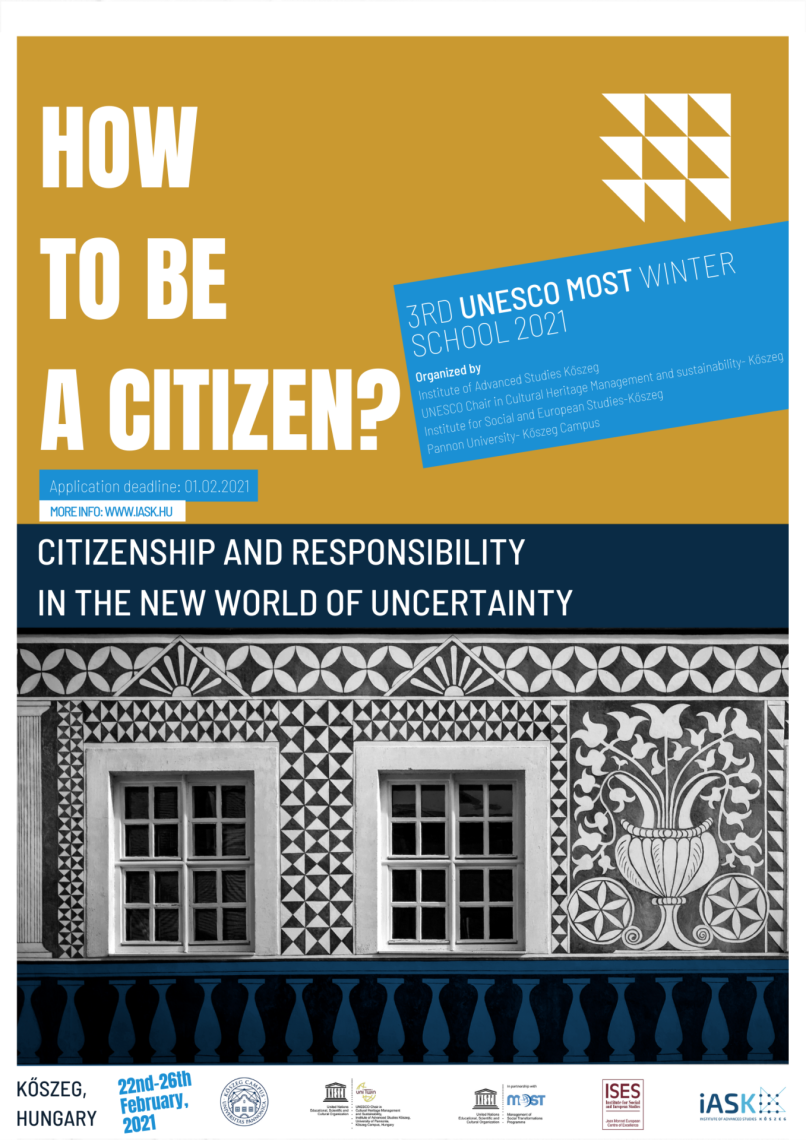
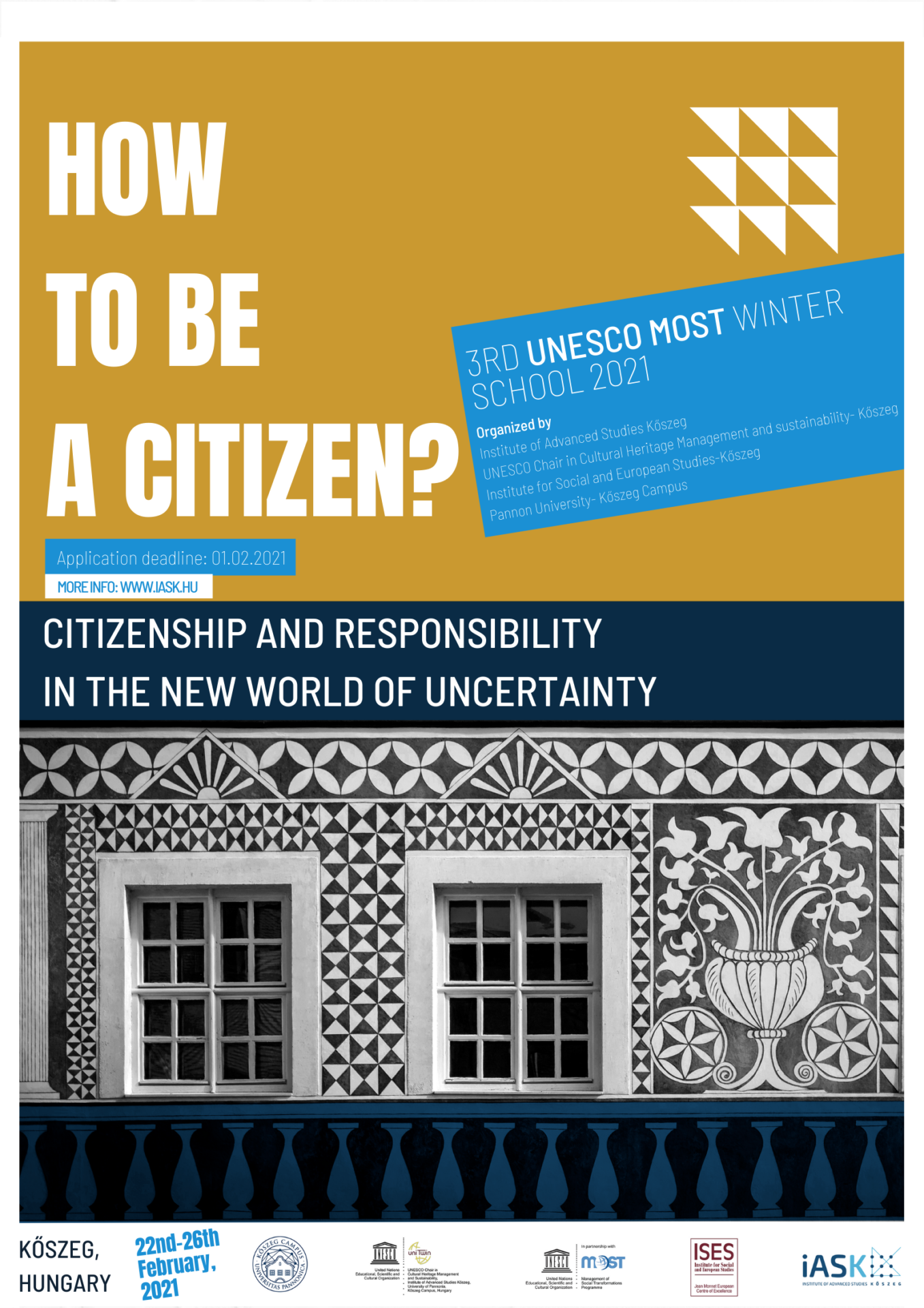 Organized by the Institute of Advanced Studies Kőszeg (iASK) and the Institute for Social and European Studies (ISES), in cooperation with the University of Pannonia, and the UNESCO Chair of KőszegThe notion of citizenship is undergoing profound change as the tensions between global, regional, and national forms of belonging and integration are becoming increasingly contested. The assumed relationship between citizens and nation-states is challenged by the evolving trends of economic, political, and social globalization. At the same time, growing economic disparities and injustice, climate change and pandemics have not only resulted in the rise of a precariat and denizens within the core of the world-system but have likewise led to an increase in migration flows towards Europe by the marginalized populations of global peripheries. While these trends, entwined and interdependent, emerge as the most obvious symptoms of global distress, the questioning of contemporary (dis)order is articulated from various sides of the political spectrum.
Organized by the Institute of Advanced Studies Kőszeg (iASK) and the Institute for Social and European Studies (ISES), in cooperation with the University of Pannonia, and the UNESCO Chair of KőszegThe notion of citizenship is undergoing profound change as the tensions between global, regional, and national forms of belonging and integration are becoming increasingly contested. The assumed relationship between citizens and nation-states is challenged by the evolving trends of economic, political, and social globalization. At the same time, growing economic disparities and injustice, climate change and pandemics have not only resulted in the rise of a precariat and denizens within the core of the world-system but have likewise led to an increase in migration flows towards Europe by the marginalized populations of global peripheries. While these trends, entwined and interdependent, emerge as the most obvious symptoms of global distress, the questioning of contemporary (dis)order is articulated from various sides of the political spectrum.
